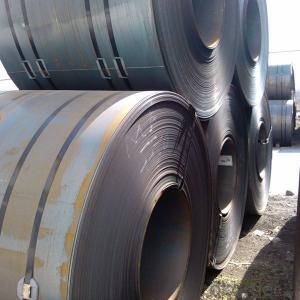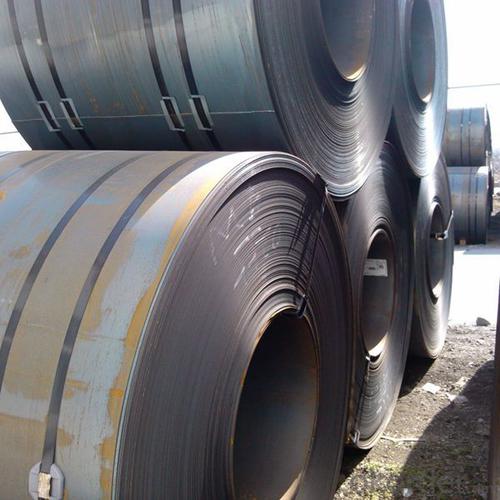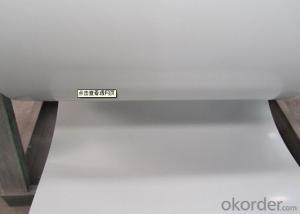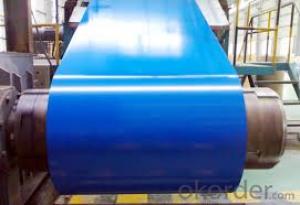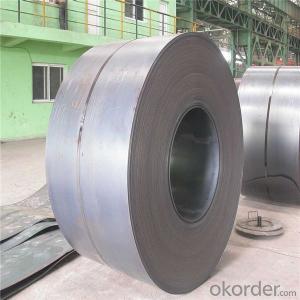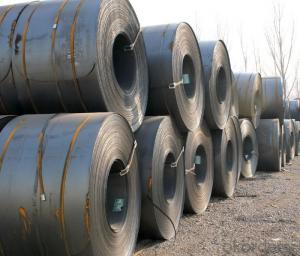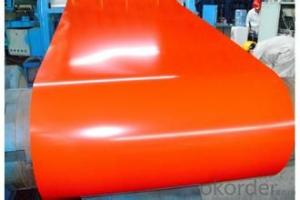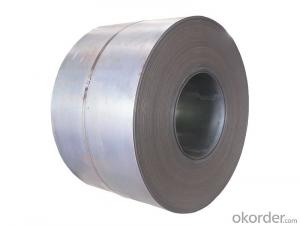Hot Rolled Steel Plates,Steel Plates,Steel Coils,Made in China
- Loading Port:
- Tianjin
- Payment Terms:
- TT OR LC
- Min Order Qty:
- 28 m.t.
- Supply Capability:
- 250000 m.t./month
OKorder Service Pledge
OKorder Financial Service
You Might Also Like
Specification
DESCRIPTION FOR SS400 CARBON STEEL SHEET
1.Thickness: 1-200mm
2.Width: 100-3000mm
3.Length: 1000-12000mm
4. Applications :mining machinery, environmental protection, engineering
5. Grade:SS400 A 36 Q195.Q235.Q345.SPCC.SPCH
6.Surface : Hot Rolled Cold Rolled Galvanized Steel
DETAILS:
Thickness | 0.5-100mm |
Width | 1250mm,1500mm,1800mm,2000mm.,2500mm or as required |
Length | 2000-12000mm |
Standard | AISI, ASTM, BS, DIN, GB, JIS |
Material | A36,SS400,SPCC,SPHC, Q195, Q 235,Q345 |
Tehnique | Hot rolled;cold rolled |
Payment | TT ,L/C |
Packing | Standard seaworthy packing or as required |
Market | Mild east, North/South America, Europe, Asia,Africa etc |
Certificate | BV,SGS,MTC |
Delivery time | 15-45days after confirming the order |
PACKING:
1.Big thickness:by bulk vessel
2.Small thickness:packed by steel strips and shipped by container
3.According to the requirements of customers'
TRADE TERMS :FOB, CFR, CIF
FEATURES OFSTEEL COILS
(1)Good ductility
(2)Good corrosion resistance
(3)Excellent abrasion resistance and fatigue strength
(4)Good weldability
(5)Oxidation resistant performance
(6)Excellent in high temperature
OUR SERVICE
1.High quanlity and reasonable price.
2.Customized on-demand.
3.Reasonable shipping and fast delivery.
4.Free sample.
FAQ
Q:What are the advantages of your company ?
A: We have many professionals, technical personnel, more competitive prices and best after-dales service than other steel companies.
Q:Can you arrange the shipment ?
A: Sure we can help you with the shipment. We have forwarders who have cooperated with us for many years.
- Q: All the appliances in my kitchen are stainless steel, and I hate how they look becuase every time I wash them they are full of streaks. Is there a good cleaner made for stainless steel that won't leave streaks?
- Stainless Steel Appliance Cleaning Stainless steel kitchen appliances look best when they're clean and shiny. To clean tough stains and cooking grease, and give them a dazzling shine, try the same detergent you would use when washing the dishes. One formulated to cut grease works especially well.This also works well for general kitchen cleaning.Waterless hand soap also works great as a polish, simply rub on, and polish - no rinsing.=)
- Q: i cant find this stuff about steel:conductivitystrengthcorrosion resistancecommon applicationsif you know of any interesting facts, i could use those 2!thanx!
- go okorder and search for steel.......
- Q: What are the common methods of testing the durability of steel coils?
- There are several common methods used to test the durability of steel coils. These methods evaluate the strength, performance, and resistance of steel coils to various stresses and conditions. Some of the most widely used methods include: 1. Tensile testing: This method involves subjecting steel coils to tension until they fail. It measures the maximum stress a coil can withstand before breaking or deforming. Tensile testing provides valuable information about the strength and ductility of steel coils. 2. Bend testing: This method evaluates the flexibility and resistance to deformation of steel coils. It involves bending the coil to a specified angle and examining whether it cracks or fractures. Bend testing is essential to assess the durability of coils in applications that involve bending, such as construction or automotive industries. 3. Impact testing: This method assesses the ability of steel coils to withstand sudden shocks or impacts. It involves striking the coil with a heavy object and measuring the energy absorbed or the extent of deformation. Impact testing is crucial in determining the toughness and resistance of coils to sudden loading conditions. 4. Corrosion testing: Steel coils are often exposed to corrosive environments, such as moisture or chemicals. Corrosion testing evaluates the resistance of steel to degradation caused by these corrosive agents. Methods like salt spray testing or electrochemical testing are commonly used to simulate and assess the durability of steel coils in corrosive conditions. 5. Fatigue testing: This method evaluates the ability of steel coils to withstand repeated loading and unloading cycles. It involves subjecting the coil to cyclic stresses until it fails. Fatigue testing is crucial in industries where coils are subjected to repetitive loading, such as in machinery or infrastructure applications. 6. Hardness testing: This method measures the resistance of steel coils to indentation or scratching. It provides information about the strength and wear resistance of the material. Common hardness testing methods include Brinell, Rockwell, and Vickers hardness tests. 7. Non-destructive testing: In addition to destructive testing methods mentioned above, non-destructive testing techniques are also used to evaluate the durability of steel coils. These methods, such as ultrasonic testing, magnetic particle inspection, or X-ray testing, allow for the detection of internal defects or flaws without damaging the coil. By employing these testing methods, manufacturers and industries can ensure that steel coils meet the required durability standards and perform reliably in their intended applications.
- Q: So finally got around to watching man of steelnow i heard a few times that batman was in iti didn't se him.in the film is it something subtle I've just missed or is he not in it?when i googled it got loads of results for them being together in the new film but nothing about man of steel 2013
- Batman himself is not in Man of Steel; he is in the upcoming sequel to Man of Steel though, titled Batman v Superman: Dawn of Justice There are subtle references to Batman in Man of Steel though. When Superman and Zod are fighting and they fly up above the Earth, the satellite they fight next to has the Wayne Enterprises logo on it (Wayne Enterprises is the name of the company owned by Bruce Wayne AKA Batman). Also (and this one is very hard to spot) there is a part where Zod throws Superman into an office building, and just for a split second you can see a poster on the wall which says Keep Calm and Call Batman So no, Batman is not in Man of Steel, although he is in the sequel and he is referenced in Man of Steel.
- Q: What are the different types of steel processing equipment for coils?
- There are several types of steel processing equipment used for coils, including slitting lines, cut-to-length lines, blanking lines, and coil-to-coil lines. Slitting lines are used to slit wide steel coils into narrower strips, while cut-to-length lines are used to cut coils into specific lengths. Blanking lines are used to cut shapes out of coils, and coil-to-coil lines are used to transfer coils from one processing stage to another.
- Q: Can steel coils be coated with impact-resistant materials?
- Yes, steel coils can be coated with impact-resistant materials.
- Q: Having a new kitchen and would like to know the pros and cons of stainless steel as opposed to white appliances. I can only think of finger marks on the SS, which I believe are difficult to remove. Anyone had both that they could advise please?
- A relative had a stainless steel range. It always looked a fingerprinted mess. I have never liked it. To me, it is grey with a sheen. I hate grey. I am a white appliance person all the way. White makes the room look cleaner, brighter and larger and it is easy to keep clean. Stainless is a nightmare to keep clean. Almost forgot to mention, when we bought our house a few years ago, it had a stainless steel range, horribly marked and scratched. I got rid of it, in keeping with white.
- Q: What are the different methods of edge wave correction for steel coils?
- There are several methods of edge wave correction for steel coils. One common method is using edge trimmers, which cut off the uneven edges of the coil to create a straighter edge. Another method is through tension leveling, where the coil is stretched to remove the wave-like deformities. Additionally, some manufacturers use roller leveling, where the coil passes through a series of rollers that press and flatten the edges. Lastly, laser technology can be employed to accurately measure and correct any edge wave deformities.
- Q: I'm putting a bathroom in my basement. I'm an Ironworker btw. I wanted to go with steel studs due to the fact that they are light, and I won't have a big mess. I live in the Chicago area and they should be easy to find. Here is my question. Are they not being used anymore? I ordered 100 studs from Lowe's but they didn't have track. The delivery guy was a retired Carpenter and he told me that I got all the studs they had, they no longer stock steel studs, and they don't have track. Am I missing something? Menards didn't have track either.
- Ask a Carpenter friend where you can buy metal studs. There should be a large drywall supplier somewhere close to your area - they usually also stock metal studs and ceiling grid that sort of all goes together for contractors. You will have a choice of 20 or 25 gauge studs track. 25 gauge is pretty flimsy so I suggest using 20 gauge. Get a small box of tek screws to attach studs to track. Also get some self drilling drywall screws 1+5/8 for 5/8 thick gyp bd. or 1+1/4 for 1/2 gyp bd. I would also buy MR drywall (moisture resistant) for any work in a basement. Another tip : Buy some 1x4 composite trim boards to use for your bottom plate. Clean the slab good where you plates will go, then use some Liquid Nails hd and glue your plates down to the slab. That way you won't be drilling holes in the slab that could allow water to seep up through them. The composite trim will not wick moisture and it will keep your metal studs up off the floor should you ever have a water problem in the bathroom. Keep your drywall up off the floor about 1/2 by laying a scrap pc. of drywall against the plate before you hang the board. Allow enough room to line the perimeter of your door frame with 2x 4 vs. metal stud. It makes it easier installing the door and trim.
- Q: How are steel coils packaged for shipping?
- Steel coils are typically packaged for shipping by placing them on wooden or steel pallets, securing them with steel bands or straps, and covering them with protective wrapping such as plastic or waterproof paper. This packaging ensures the coils remain stable, protected from corrosion, and are easy to handle and transport.
Send your message to us
Hot Rolled Steel Plates,Steel Plates,Steel Coils,Made in China
- Loading Port:
- Tianjin
- Payment Terms:
- TT OR LC
- Min Order Qty:
- 28 m.t.
- Supply Capability:
- 250000 m.t./month
OKorder Service Pledge
OKorder Financial Service
Similar products
Hot products
Hot Searches
Related keywords
